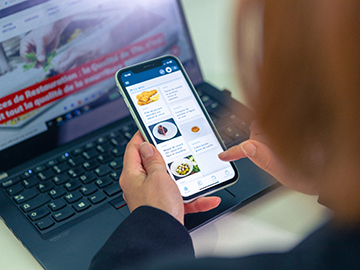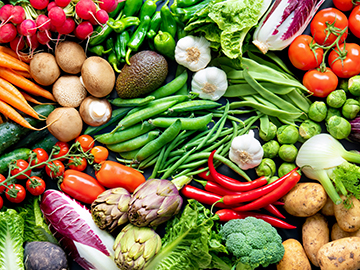The most influential tech event showcasing the latest consumer industry trends in innovation, CES, happened last week in the midst of covid.
Showing the power which digitalization has to draw in the hybrid virtual and in person crowd. From a color-changing car, to disinfecting robots to artificial intelligence (AI) cats, this event immerses people in the possibilities of tech solutions of the future.
So, what are some of the trends shaping the service industry in to 2022 and beyond?
Metaverse and technologies blurring the boundaries between digital and physical experiences
Metaverse is this year’s buzz word and, along with other technologies, is expanding the boundaries of a service experience. Metaverse can be used through AI, virtual reality (VR) or other tech solutions to simulate the experience of attending an event, going to a store or visiting a museum broadening service reach beyond the physical venues. Everyday physical experiences such as dining, driving, meetings, and workouts can also be enhanced with the help of these digital technologies! We predict that this growing trend will continue to expand and will soon become an expectation by consumers across sectors.
We are already taking advantage of these digital capabilities to enhance the physical world. For example, our teams use augmented reality (AR) glasses in mining operations allowing skilled technicians to aid remote field workers on-site and for virtual site access for Health, Safety and Environment (HSE) management.
Innovations are enabling more sustainable services
With sustainability gaining traction in the service industry, it was great to see so many innovations in tech that can support services to have a positive impact on the planet. From greener options in mobility, innovations in food production, packaging and delivery to more efficient waste reduction, we see these innovations as key enablers to improving sustainability.
At Sodexo, we have several solutions that utilize the latest innovations to reduce our food waste, including our WasteWatch program powered by Leanpath which prevents food waste by 50% on average. This technology has helped our teams to rapidly and easily capture food waste data, providing clear insights into what is being wasted in their kitchens and why.
Leading-edge technology reinventing the food experience
For the first time, Food tech was one of the focus areas, showcasing the growing comfort in using data, AI, automated food production and robots to enhance the food experience. Some of the top tech trends in the B2B service industry used to enhance the meal experience:
- Autonomous stores, smart vending and delivery robots to bring more convenience and flexibility for people wherever and whenever they would like.
- Data-driven technology laying the foundations for contactless and frictionless food experiences such as food recognition, automated checkout/payment.
- Leveraging data and AI to personalize the food experience such as providing menu options or personalized recommendations.
- Automated cooking technologies and smart appliances that help out professional chefs or individuals at home prepare top quality meals.
- Restaurant robotics to automate food and beverage making processes to improve efficiency and offer 24/7 services
Our teams are using these technologies to reinvent our food services and offer multichannel and multiple format meal experiences including delivery, smart technologies, and virtual restaurants. Take for instance at the CES, our Sodexo Live! teams managing the food services were proud to once again welcome the pizza making robot, Picnic, one of the “Best of CES” in 2020.
Expanding options and services for autonomous home and health care
By 2050, the world's population of people over the age of 60 and older will double expecting to reach 2.1 billion and with a growing preference for in-home care. As a result, health tech products which provide new solutions for people seeking ways to empower themselves and take control of their care and wellbeing at home are increasingly popular. From robots and sensors which help those with mobility difficulties to live an easier life at home, to technologies that empower people to manage their own health and nutrition using data for personalized recommendations.
In our Health & Care sector, our teams are partnering with leading tech companies to bring in these tech solutions for our patients, such as our partnership with Nectarine Health™, a home care system that monitor falls or changes in activity for seniors at home or ElliQ, an interactive robot designed to empower seniors’ independence with activities, health check-ins, cognitive games, interaction with family and more.
These trends are reinforcing our approach to integrating technology to boost our ability to design and deliver the ultimate experience for our clients and consumers as well as support our corporate responsibility initiatives aimed at having a positive impact on individuals, in society and on the planet.
If you are interested in reading more about new technology,



